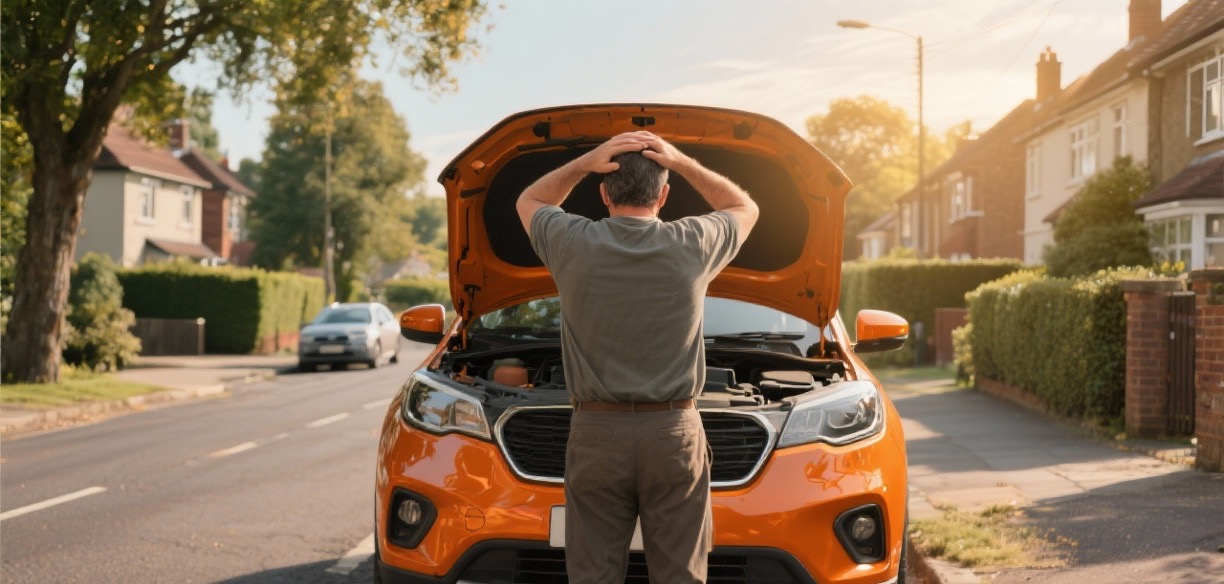
(Approx: 7min read)
When it comes to looking after our cars, you’d think Brits would love getting their heads under the bonnet…
After all, we’re the nation that invented the Haynes manuals (famous set of manuals that focus on car repair & maintenance) and gave the world iconic car brands such as Aston Martin, Rolls Royce, McLaren and Land Rover.
However, the reality in 2025 is very different: according to an exclusive recent poll by Warrantywise, most UK motorists now prefer to call a garage than get their hands dirty.

Key facts at a glance:
- According to Warrantywise’s poll, 56% of motorists get someone else to fix problems with their vehicle when they arise. A mere 6% said they normally fix problems with their vehicles themselves.
- In the same poll, 54% of UK drivers said they would either be ‘not at all comfortable’ or ‘not very comfortable’ changing the wheel on their car at the side of the road if they had a flat tyre and were carrying a spare.
- A separate 2022 survey revealed 76% of UK drivers struggle with basic car maintenance tasks such as checking/topping up fluids. [1]
- Research from Halfords suggests younger people are even more likely to look to someone else for car repairs, with 57% of ‘Gen Z’ admitting they didn’t know how to add air to a car’s tyre. [2]
- Separate data suggests negative experiences with do-it-yourself maintenance could be partly to blame for the figures, with as many as 45% of UK drivers admitting to having previously ‘botched’ a repair or maintenance job. [3]
- Other reasons cited by drivers for avoiding DIY maintenance are not knowing what to do, cost concerns and fear of causing more problems or damage. [4]
- A survey carried out by the RAC back in 2012 showed that as many as 70% of Brits were happy to tackle car maintenance themselves, indicating confidence has fallen dramatically since. [6]
Poll results: Which statement applies when it comes to fixing problems on your vehicle?
So what’s going on? Why do so many UK drivers no longer want to fix their cars themselves?
Confidence is low:
A Compare the Market survey of 2,000 British drivers in February 2022 found a whopping 76% admitting they struggle with basic car maintenance tasks, from changing a tyre to checking fluid levels. [1]
When drivers were asked which specific tasks they felt least confident doing:

Couldn’t confidently change a tyre.

Lacked confidence to change engine oil.

Said they couldn’t check brake fluid.
Worse, only 6% of those polled in the survey aged 17–24 felt confident doing all necessary maintenance, compared to 37% of those aged 55+.
A lack of skills – particularly among younger drivers:
Recent research from Halfords exposed a generational shift when it comes to drivers maintaining vehicles themselves. Younger adults (18–27) are more likely to pay professionals even for very simple repair and maintenance tasks. Nearly 57% of Gen Z didn’t know how to add air to a tyre, and only 35% felt they could fit new wiper blades.
A key driver is lack of confidence and upbringing – many Gen Z drivers never learned hands-on motor skills from parents, unlike earlier generations. [2]

Most just don’t want to do it:
Compare the Market also reported that 72% of UK drivers have faced maintenance issues they were not able to fix themselves. And embarrassingly, 76% said they couldn’t perform basic tasks like changing a light bulb or topping up fluids. [1]
Further, 63% of drivers said they aren’t interested in learning more about car maintenance – even after encountering problems they couldn’t solve themselves.

Negative past experiences:
In a separate Aviva study, 45% of UK motorists admitted to having ‘botched’ a repair or maintenance job – leading to an average extra repair bill of £803. That undoubtedly and understandably puts many people off trying again.
Common ‘botched’ jobs included checking and topping up fluids (22%), changing batteries (21%), and replacing interior parts like door handles (20%) – all fairly basic jobs that went wrong. [3]
Even EV and hybrid owners – whose vehicles typically require fewer routine maintenance tasks – reported 96–97% attempted their own work, but costly mistakes still occurred, with EV owners paying up to £1,279 to fix a failed DIY attempt.
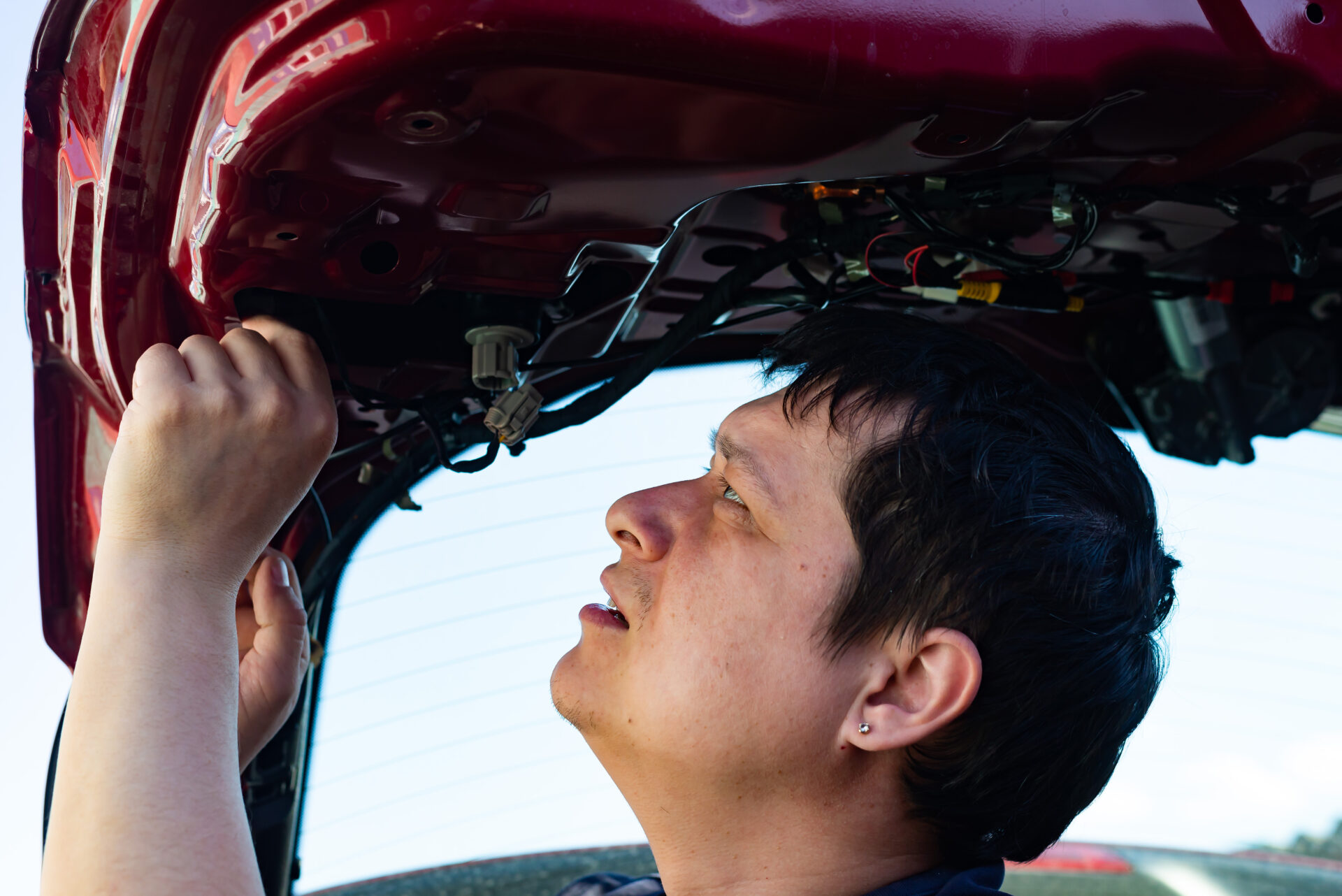
Modern cars are more complex:
According to 2023 research, two thirds (~66%) of UK motorists believe modern cars are too complex for them to spot or fix issues for themselves. [5]
When this data is investigated further, it’s clear the issue is even worse for owners of brand-new cars. 72% of new car owners felt their car was too complicated to fix themselves, compared to 60% of used car owners.
With modern cars having almost seven times the electronic control units (ECUs) than cars from the 1990s [5], it’s easy to see why this data is as it is.
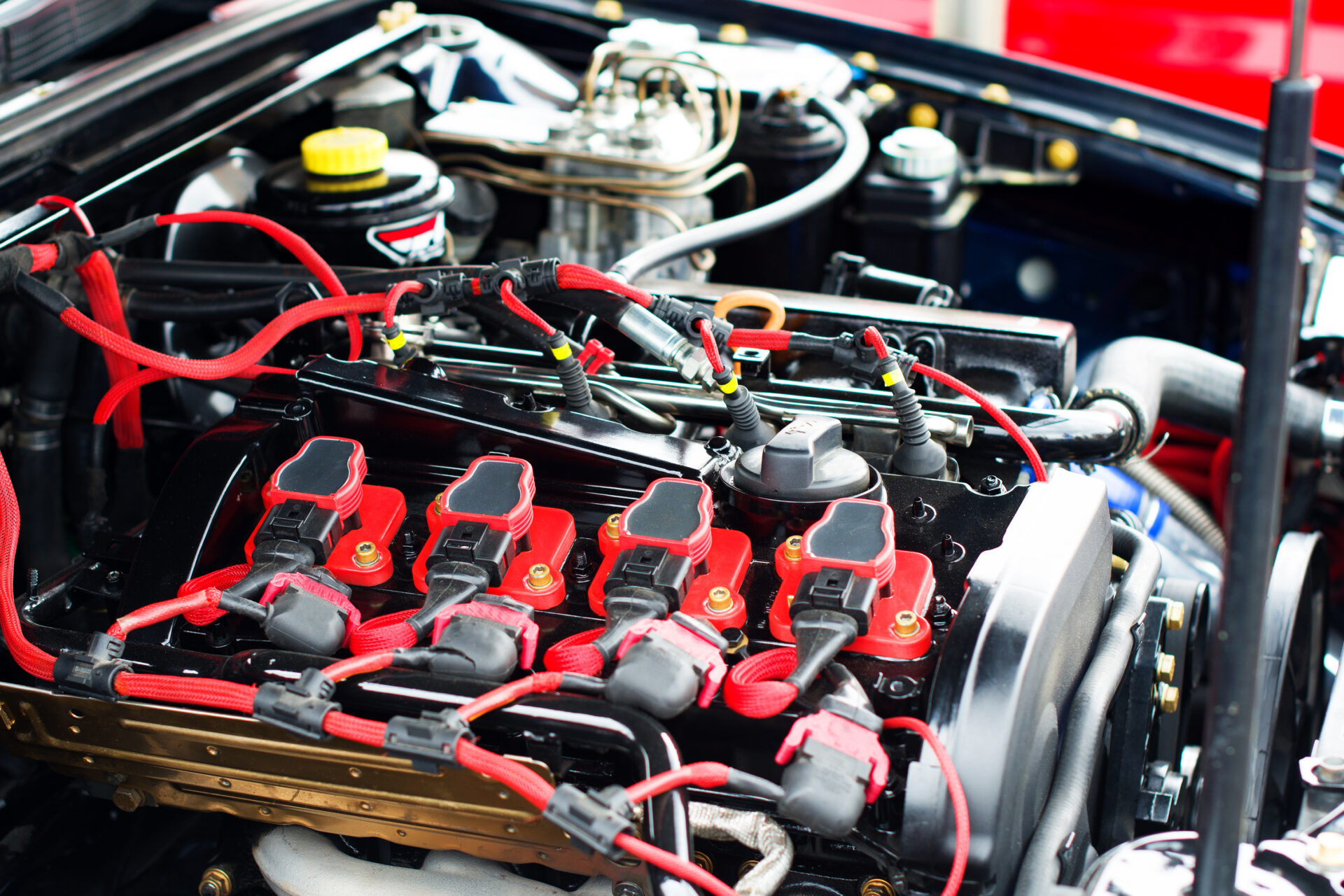
Many drivers avoid maintenance altogether:
A Prima Insurance study in May 2025 found that only 22% of drivers perform regular maintenance every three months. In comparison, 5% never maintain their car, and 8% wait for warning lights before taking action.
Reasons cited by drivers included not knowing what to do (35%), cost concerns (34%) and fear of causing damage (also about 34%). One in three were unsure when maintenance was needed, and 9% not confident at all. [4]
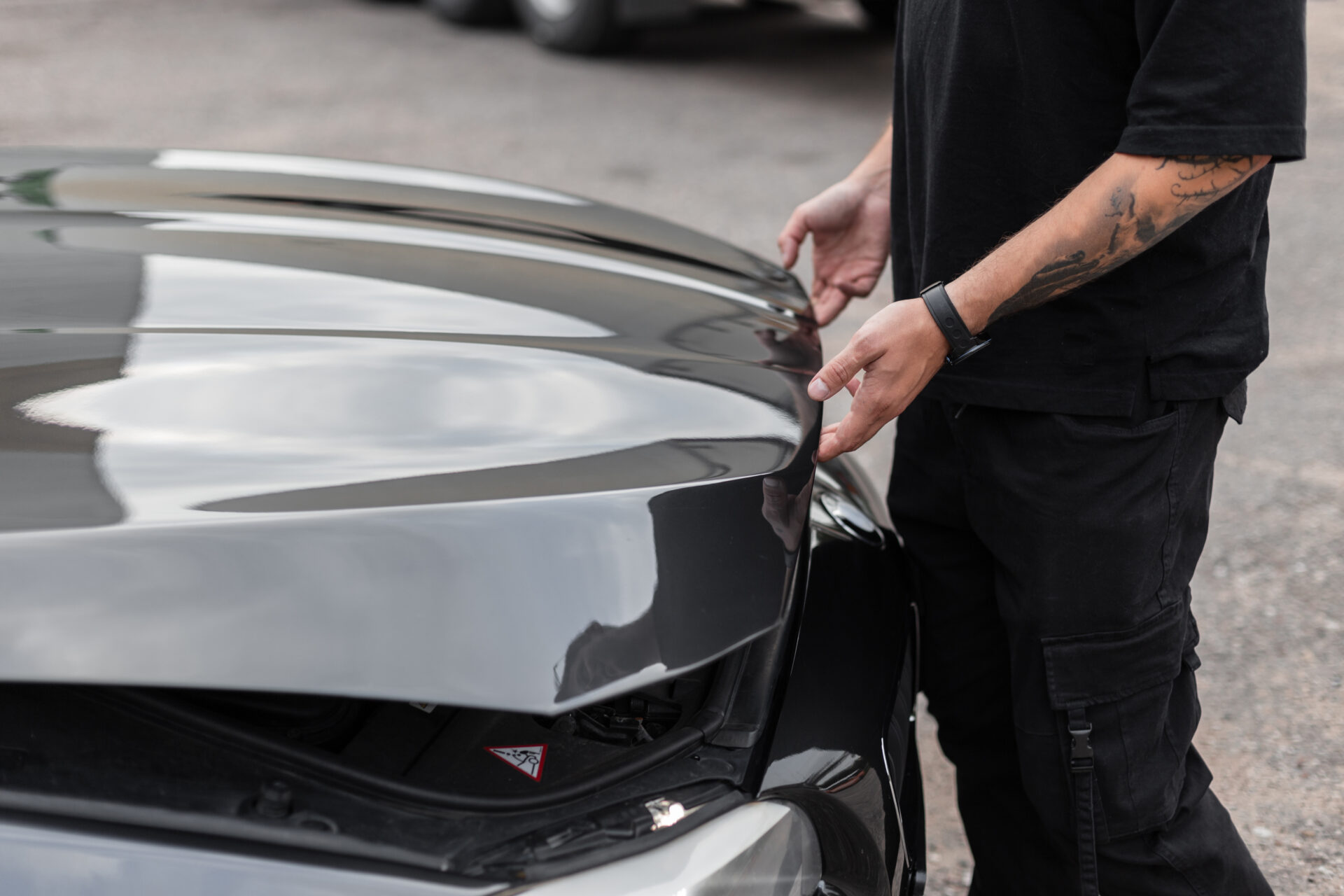
History told a different story:
Given this mix – lack of confidence, skill gaps, increasing automotive complexity, and expensive DIY mistakes – it’s no surprise that the majority prefer garages or professionals to handle maintenance:
However, it hasn’t always been like this…
The RAC released data in 2012 that indicated around 70% of Brits were happy to do their own maintenance, calling us a nation of “have-a-go-mechanics” who believed garages “rip off motorists”. [6]
The same report even went on to state that 18–24-year-olds were the most likely demographic to repair their cars themselves, in stark contrast to the data in 2025.
Fastforward over a decade, and the picture has completely flipped: confidence has fallen dramatically, cost fears and complexity increased, and a new mindset dominates.
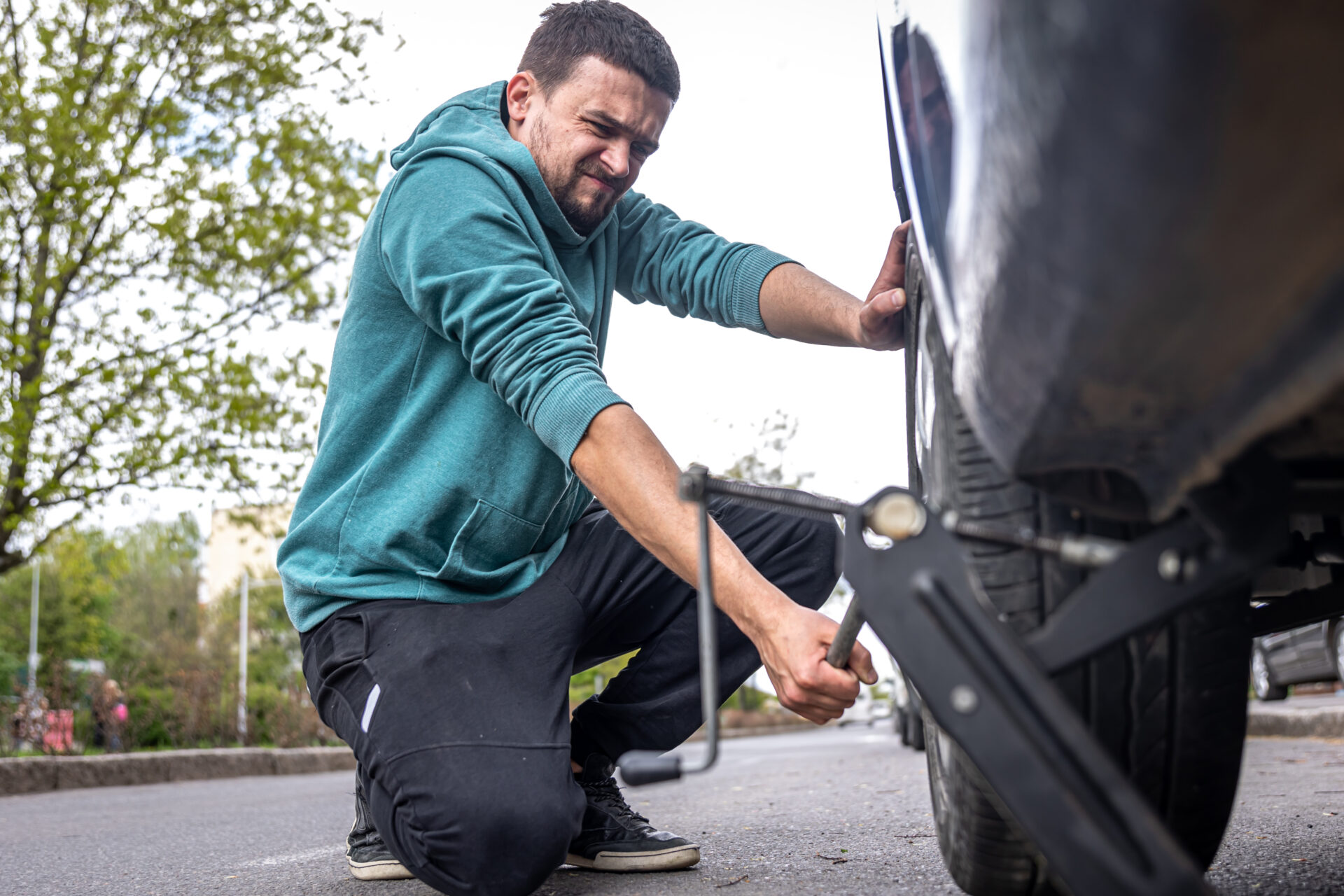
So, what maintenance could UK drivers realistically be doing themselves?
Topping up windscreen wash, checking tyre pressure, filling screen wash or checking oil levels – these remain within reach for many confident drivers (especially older or experienced ones). Group 1 research shows over 70% can manage these basic tasks. [7]
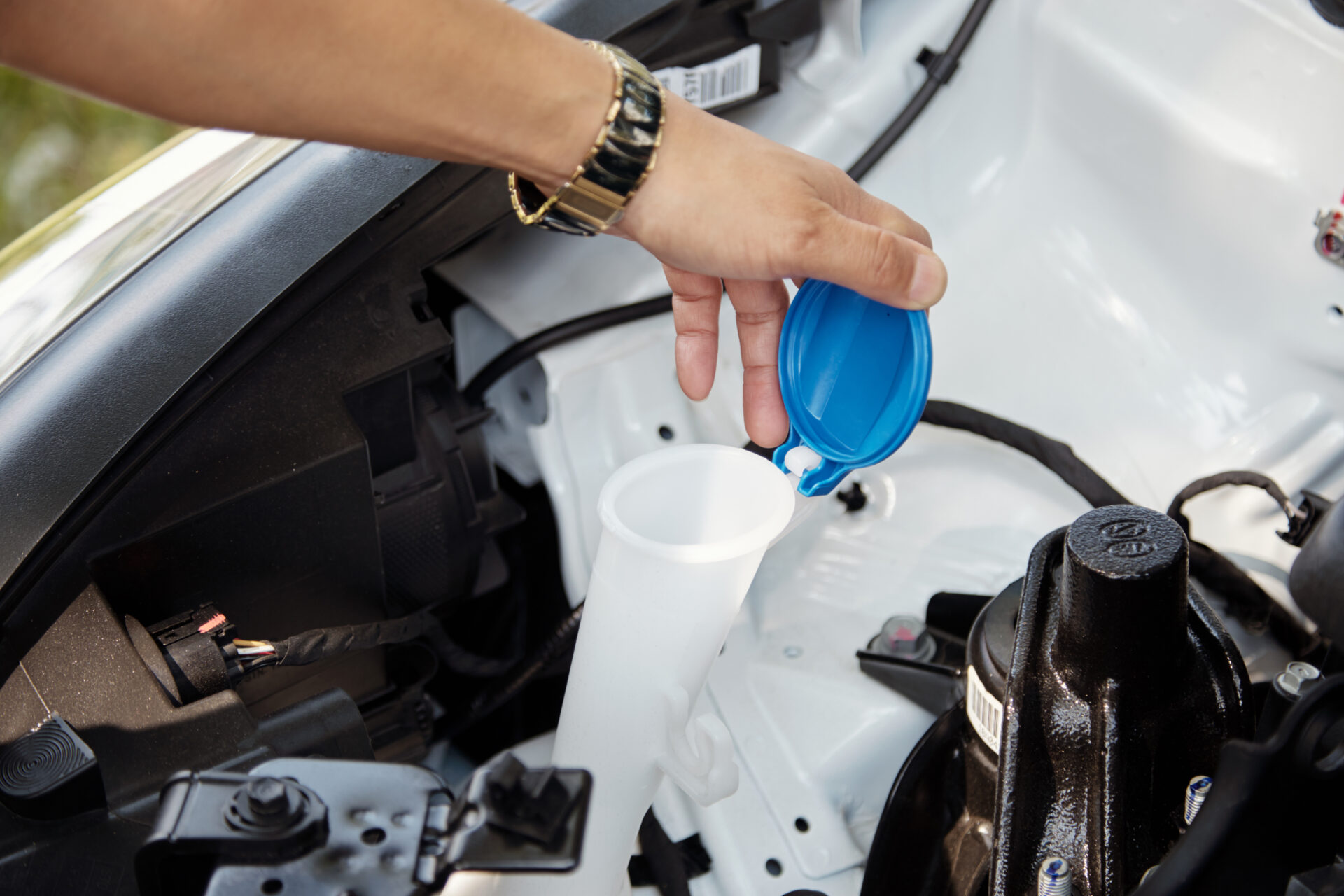
What is probably best left to professionals?
Tasks like changing tyres (replacing on wheel), topping up brake fluid, replacing batteries, or more advanced repair work are often understandably beyond comfort levels – especially since nearly half of DIY jobs end up costing significantly more to fix later.
This is where the benefits of an extended warranty become obvious. As cars age, the chances of unexpected problems and repair bills you cannot perform yourself rise – from things like replacement suspension to various electrical issues. An extended warranty helps to protect against those sudden costs, offering peace of mind that you won’t be hit with a hefty bill just to keep your car on the road.
For many drivers, especially those planning to keep their cars longer rather than upgrade, that protection can make ownership more predictable and affordable in the long run.

Building skills – or embracing professionalism?
There is value in spreading basic car knowhow – indeed, people who are taught simple tasks gain confidence quickly. But research shows most UK drivers are not looking to learn: 63% said they have no intention to learn more about car maintenance, even after failing to do it themselves. [8]
For those seeking help, options include local motor vehicle maintenance evening courses or supervised workshop bays – though uptake seems limited, particularly outside second-hand enthusiasts and niche community groups.
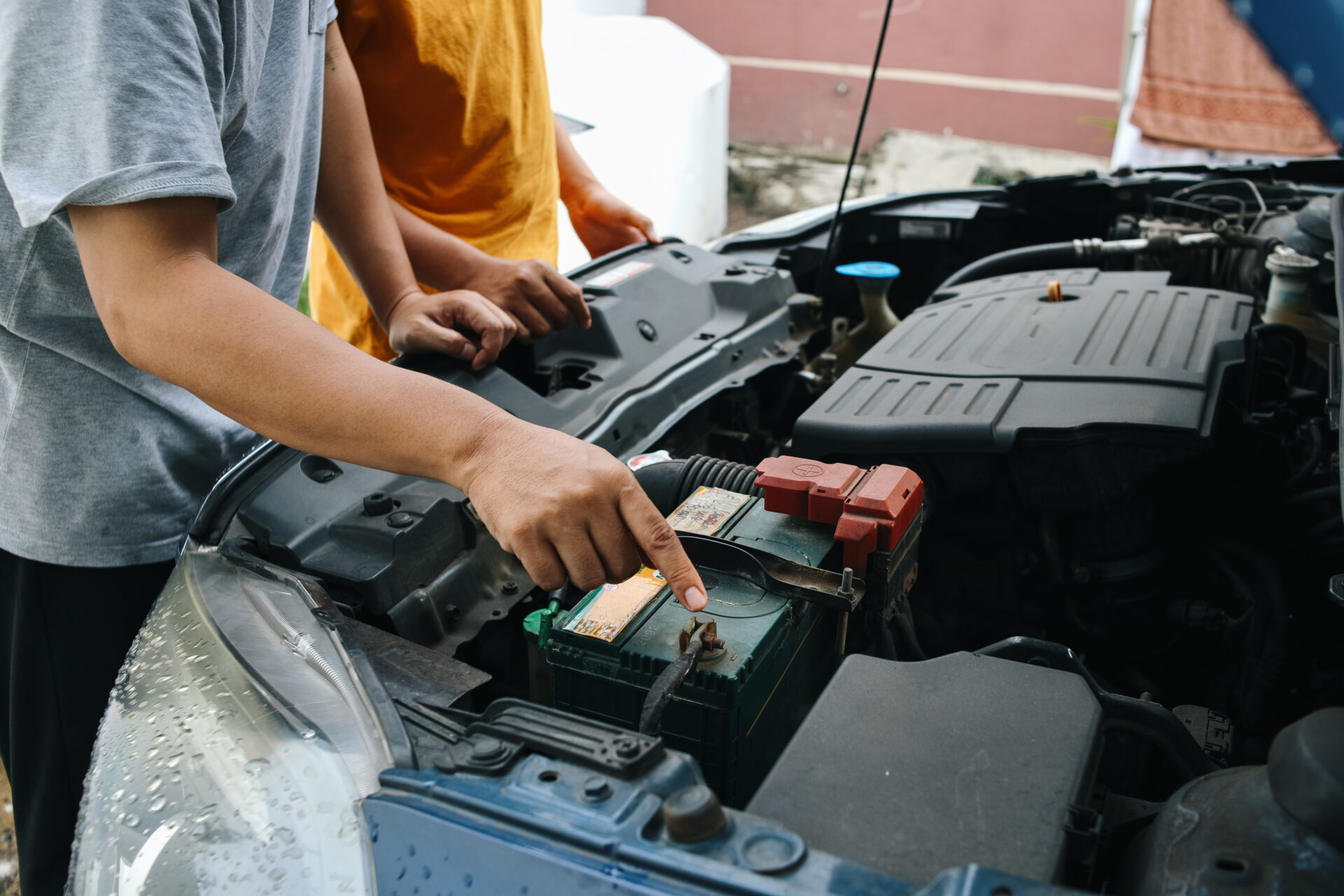
So, what can be done?
- Education and confidence building: Simple workshops, online tutorials, or basic motor knowledge could help people feel more able.
- Clarity on costs and expectations: Professional garages who explain jobs and cost estimates transparently may help reduce fear of overcharging.
- Promote basic tools and checks: Knowing how to check your tyre tread, oil levels or windscreen wash can prevent bigger issues.
- Bridge the confidence gap: Especially for younger drivers, encouraging practical hands-on training.
- Consider an extended warranty: Aftermarket warranties cover most of those more complicated repairs you couldn’t – and perhaps shouldn’t – do yourself. Get a quote here or call our sales team on 01254 355 100.

Conclusion:
When it comes to car repairs and maintenance, the UK might have once been proud of its DIY spirit, but today most people would rather pay someone else to carry out their car repairs and maintenance.
Lack of confidence, rising vehicle complexity and high-risk botched jobs have pushed practical repairs out of reach for many.
The future lies in better education, support from trusted professionals and maybe a return to basics – or at least a better basic understanding of what’s going on under your bonnet.
Discover more.
Further Warrantywise articles you might find useful…

Delaying repairs is costing you more than you realise.
(Approx: 6min read) Delaying repairs or maintenance on your vehicle might seem like a harmless way to save money in … Continued

Britain’s cars are now ten years old on average – we reveal the Top 10 most reliable.
(Approx: 5min read) This article is also available in video form, here: For the first time, the average age of … Continued

Hatchback or small SUV: Which is the smarter second-hand buy?
(Approx: 7min read) If you’re choosing a used car in 2025, the decision often comes down to two popular categories: … Continued
External sources of information in this article:
[6] RAC 2012 report